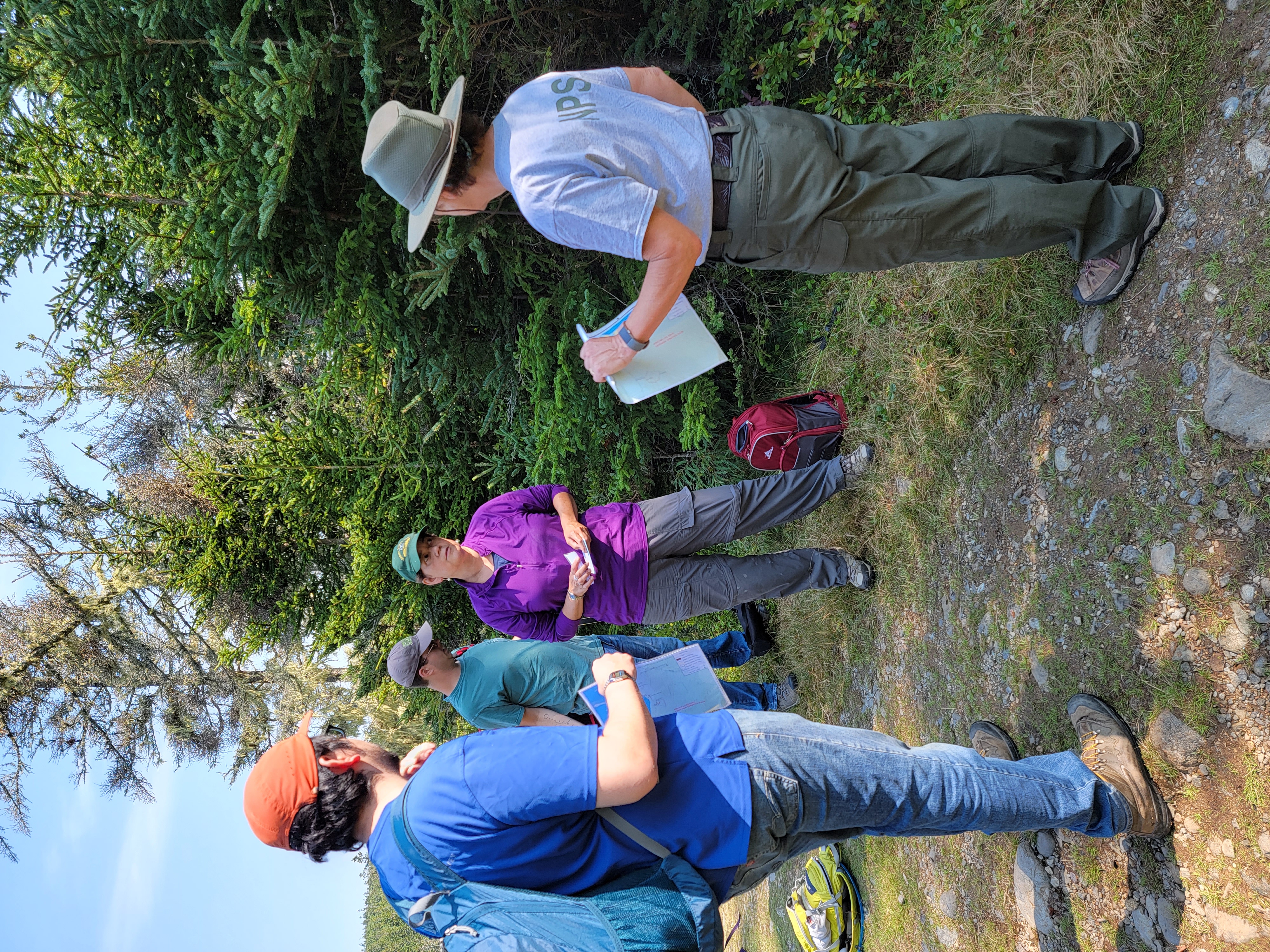News Release

C. Schmitt / Schoodic Institute
|
Subscribe
|
Contact: Amanda Pollock, 207-288-8806
BAR HARBOR, MAINE – Acadia National Park will receive $950,000 in funding from the Inflation Reduction Act to create a model for addressing climate change vulnerabilities of coastal archeological sites, collections, landscapes and ethnographic resources using a ‘Two-eyed Seeing’ approach.
Across the Northeast, sea level rise, flooding, and extreme weather events affect thousands of documented and undocumented cultural sites affiliated with Tribal nations. By utilizing the ’Two-eyed Seeing’ model for meaningfully integrating Indigenous Knowledge (IK) with western science, this project will build on 15 years of consultation at Acadia National Park, Saint Croix Island International Historical Site and Roosevelt Campobello International Park with Wabanaki Tribes.
This news comes as the National Park Service just announced projects to be funded by the full $195 million in Inflation Reduction Act funding to prepare parks across the country to be resilient to climate change. These investments are incredibly timely, as healthy ecosystems, wildlife and native plant habitats, and cultural resources are threatened by climate change and many other environmental challenges.
These projects infuse much-needed funding in putting people to work in addressing critical ecosystem needs to restore healthy and resilient park lands while benefiting communities surrounding parks.
This project will allow for the co-creation of a decision framework and adaptation guidebook, using 25-35 threatened archaeological sites as case studies. The park and Wabanaki Tribes will produce a product that models co-stewardship in identifying, prioritizing, adapting, and monitoring climate vulnerable indigenous archaeological sites. The team will then develop and and pilot a citizen science program for documentation and monitoring vulnerable sites and landscapes. Finally, the parks and Tribes will co-create public programs and lesson plans for Wabanaki communities and public audiences to advance knowledge, awareness and value of indigenous resources in National Parks. The project will engage multiple partner organizations, including but not limited to federally recognized Tribes, collectively known as Wabanaki Nations; University of Maine; fluent Wabanaki language speakers; and Schoodic Institute.
"When faced with the humbling realities of what climate change has in store for places like Acadia, it only makes sense to use every resource available to us to prepare for the future,” said Superintendent Kevin Schneider. “We are eager to learn from the Wabanaki Tribes. This funding from the Inflation Reduction Act will allow Acadia National Park to work deeply with the Wabanaki Tribes to share information for co-stewardship of heritage cultural resources. We will protect climate vulnerable sites in the park based on shared decision-making, best available science and indigenous knowledge."
This announcement is a promise to future generations. Through the Inflation Reduction Act, the National Park Service is working to address the impacts of the climate crisis, including intensifying drought, wildfires, flooding and legacy pollution in national parks and other public lands. These resources will serve parks and communities across the United States with forward-looking projects.
Climate change is an overarching influence over national parks. This Inflation Reduction Act funding is a long-term opportunity to make significant investments in our nation’s lands and waters in the fight against climate change.
Last updated: April 10, 2024
